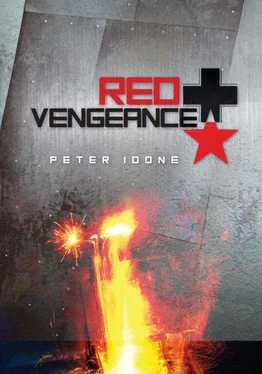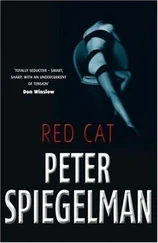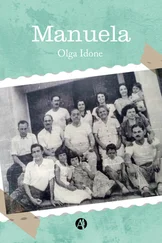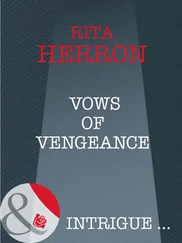“There are wars within wars, Lieutenant.” Falkenstein stood at the door, and Voss could not help but wonder how much he had heard. “Small, violent, intensely personal dramas that rage within the greater conflict. This contest—my detractors call it a sideshow—impinges upon the greater whole. The war itself.” Falkenstein entered the room, dragging his near-useless leg along. A contraption had been assembled to get as much movement as possible from the limb; leather straps and buckles fastened above and below the left knee with riveted metal struts on either side for added support. The brace squeaked quietly as the captain walked.
“Is it done?” Beutel asked.
Falkenstein nodded. “I had Vogel scare up some more fuel. We will be leaving within the hour.” He considered Voss for a moment and said, “Lieutenant, if you would excuse us, the major and I have matters to discuss.”
Voss got up and saluted the two officers. “Herr Major, Captain. Thank you for the brandy, and the very best of luck to you both.”
“It was a pleasure,” Beutel mumbled. His mood had changed radically; all the garrulousness and easy good nature had deflated, either from the drink or the proximity of the flinty captain.
“I need not remind you to use your discretion as to what was discussed here,” Falkenstein said.
“I will keep it in the strictest of confidence, sir. Good day, Herr Captain. Major.”
After Voss had left, Falkenstein drew a chair from the table and eased into it. “While we’re on the subject of discretion, you’re drunk.”
Embarrassed, Beutel averted the hostile glare boring into him. “I thought you would want to know immediately. You never hid the facts of the mission.”
“More importantly, I don’t want to start a panic. Not now.”
“Don’t worry about the lieutenant. He has scored very high marks and is thought of as one of the best young officers in your old division,” Beutel reassured him.
“I need armor. Just one tank. A Tiger or an assault gun.”
“You know that’s not possible, Hans. We’re too hard pressed as it is. Not even your benefactor at Army Group could relinquish any armor for your purposes.”
“Then tell me what is possible. I sit here with Red Vengeance so close. My command is wiped out. Stores of fuel and materiel destroyed. The nearest cache is near the boundary of Eighth Army sector, and the other is too far south for it to matter—most likely in Soviet territory. Must I carry out this task with only my will and bare hands?” Falkenstein asked, frustrated.
“That’s all any of us have left at the moment, I’m afraid.”
“This demands more, much more,” Falkenstein bellowed.
“Please, don’t yell, Hans. We are in league, you and I. Now, about refitting. You need German grenadiers, not Hiwis. They’re not always reliable.”
“I won’t say a word against those men. They served me well and fought to the last.”
The major became apologetic. “I didn’t mean those poor fellows. I meant in general.”
“Of course, I still have Khan.”
Beutel laughed uncomfortably. “That magician. He scares people. How about considering that young officer from your old division?”
“Voss? I’m afraid the lieutenant left here with the impression that I sit about in the rear area when I’m not racing around the countryside in pursuit of my ‘bête noire.’”
“That’s not the case at all. The lieutenant and I were simply having a discussion. I was attempting to clarify matters so he wouldn’t formulate the wrong opinion. Now, listen to me. I have Colonel Hahn’s ear and your best interests at heart. He is aware of your situation and sympathizes. With a little persuasion, I think he could see his way in releasing Voss, along with his crew and vehicle, to your command for temporary assignment,” Beutel said.
“The lieutenant’s unit is under strength.”
“Then we will have to flesh it out, won’t we? Have you already forgotten about the stragglers you’re so eager to interview? By all accounts, they would have not survived. Their battalion has more than likely listed them as missing or dead.”
“Josef can follow in the truck and bring them back here. I will need to examine each one in detail. It will prove a lengthy debriefing,” Falkenstein said.
Beutel nodded approvingly. “You will have an armored vehicle and a complete crew at your disposal.”
“There is hope after all.”
“You see. Now, don’t be in such a dark mood. While you’re waiting for Vogel, let’s break out some maps and see if we can’t nail down where, exactly, those poor fellows last encountered that steel beast.”
* * *
Voss was drunk when he left the cottage and stood numbly by the door for several moments, at a complete loss as to what to do with himself. The men were busy with their chores over by the parked Hanomag; the engine covers were open, and Hartmann was leaning inside the well, tinkering about with some minor adjustments to the motor. Reinhardt had the bow MG42 stripped down and was cleaning the weapon with gun oil and a rag. Self-conscious of his condition, Voss decided to avoid them and walked behind the rear of several houses, then turned onto the main road. The village had taken on a carnival-like atmosphere, with the different support units and staffs all thrown together and occupying the majority of the available houses. A network of telephone cables had been restrung from the few existing poles and trees, from one house and outbuilding to the next, as the signals unit worked to establish communication throughout this part of the new defensive position. This wouldn’t be for long, Voss thought, if Beutel’s remarks were in any way accurate. Field police directed traffic as the sun reflected on their gorgets, highlighting their impassive faces with a golden pallor as trucks, interspersed with motorcycles and horse-drawn carts, beeped their horns as they made for the bridge. A squadron of Kalmyk cavalry glided past the knot of vehicles and wagons, elegant and sitting erect in their saddles, side arms and sabers clattering. Following behind were their wives and families, with their possessions bundled to the flanks of panje ponies. Upon the dissolution of the Kalmyk autonomous republic the previous December, after the Soviets regained territory during the winter offensive, many of the civilians accompanied their warrior husbands, fathers, and sons westward with the German armies in retreat. A fierce, independent people, many of the Kalmyks feared the communists who threatened their Buddhist traditions. Known for their skillful horsemanship and fighting ability, the Kalmyks did not allow themselves to be incorporated into the ranks of the Wehrmacht but formed their own units and fought alongside the German troops as allies and equals. They proved indispensable when Voss’s division had occupied the steppes of southern Russia. Without their help as guides and scouts, the Greyhounds would never have had the degree of success they had managed. Voss spotted Tatars and Khirghiz among the crowd, many having their own argument with their former Soviet overlords; and rather than remain prisoners, they cast their lot with Germany—but certainly not with her cause. Voss was struck by the contrast. These were the “Asiatic hordes” the party railed against through propaganda efforts before and during the invasion of the Soviet Union. By striking preemptively, National Socialism would smash the Russian mongrel races before they could swarm over Europe and devour her. The Reich’s occupation and eventual colonization of the east was to be the bulwark in the defense of western civilization against the “oriental menace.” Now, as blond-haired, blue-eyed Russian and Ukrainian “Untermenschen” were transported back to Germany as slave labor to work in the factories and farms, many of these descendants of the Golden Horde had become the allies of the Wehrmacht in this inevitable conflict against bolshevism. Had he been sober, Voss still would not have been able to make sense of the party’s racial philosophies. God help us all , he said to himself, disgusted by the thought of it. He found he was being jostled along with the stream of traffic and had crossed the bridge. Parched by the dust, he left the road and made for the orchard. Peasants dispossessed of their homes had set up camp in and around the orchard’s boundary. There were troops, elbowed out of the village due to the lack of space, who had erected shelter halves and camped out. The air was thick with the scent of fermentation. Voss kicked aside rotting fruit from the base of a tree to clear a place to sit down. The trees offered dappled shade, a welcome relief from the sun. It had begun to grow cold at night, but the mornings and afternoons were still uncomfortably warm. He was tired, and the few hours’ sleep he had managed did little to alleviate the exhaustion. Time seemed to elongate, an effect he attributed to having drunk too much of the major’s brandy. His mind was suddenly flooded with memories, thoughts, and feelings that were difficult to define, let alone embrace. Despite sitting still, his body felt as though it moved as he raced with the Combat Group to extinguish one fire after the other over the past summer; from Izyum they raced in an all-out effort to help close a penetration of Hollidt’s Sixth Army, far to the south. Then another crisis back at the First Panzer Army, and they would tear back to the north once again. Familiar faces began to recede as casualties mounted. Fewer and fewer friends. Replacements, even less. Outnumbered, always outnumbered by a ratio of eight to one, and that was considered reasonable odds. Voss had been with the division from the very beginning. France, the Balkans, and then Russia, since the opening act of Barbarossa. The longer one was in the fight, the more the chances of survival decreased. Every landser knew the cold reality and tried not to think about it too often, but the thought would creep up on a man and begin to nag at him. Voss had been wounded on three separate occasions, and his entire stay in the hospital amounted to a little more than a couple of months. He supposed he was grateful, but that sort of luck could not last. Officers demanded their men to perform tasks that were impossible—and, he admitted ruefully, he was no exception. How many men have died under my command? he wondered, but dared not to count. Enough! he screamed inside his head. He wanted more brandy, vodka even, which he detested and caused him headaches, anything rather than endure this torture. Enough. His thoughts turned to home and the time that had passed since his last furlough. Over a year. He could see plainly the faces of his mother and sister, Erika, and more importantly his little brother, Manfred. Not so little, actually; he would be turning seventeen soon. He prayed the war would be over for Manfred’s sake. He did not believe the boy could endure the horrors he had witnessed. Not for a moment. He owed the family a letter but lacked the motivation to get up and fetch paper and pencil. Besides, he didn’t know what he could possibly say to them. Platitudes about the war and lies about how he was doing—quite well, thank you. Spare them. Spare them what, the truth about how he felt? He was saddened and not a little frightened of how estranged he had become. It seemed inevitable now that he had become embroiled in this strange, far-off place. In no way could it be misconstrued as home—the land was too alien for that—but it had become too familiar. It seemed more so than his own home, thinking of which only produced feelings of nostalgia, without definition, intangible.
Читать дальше











